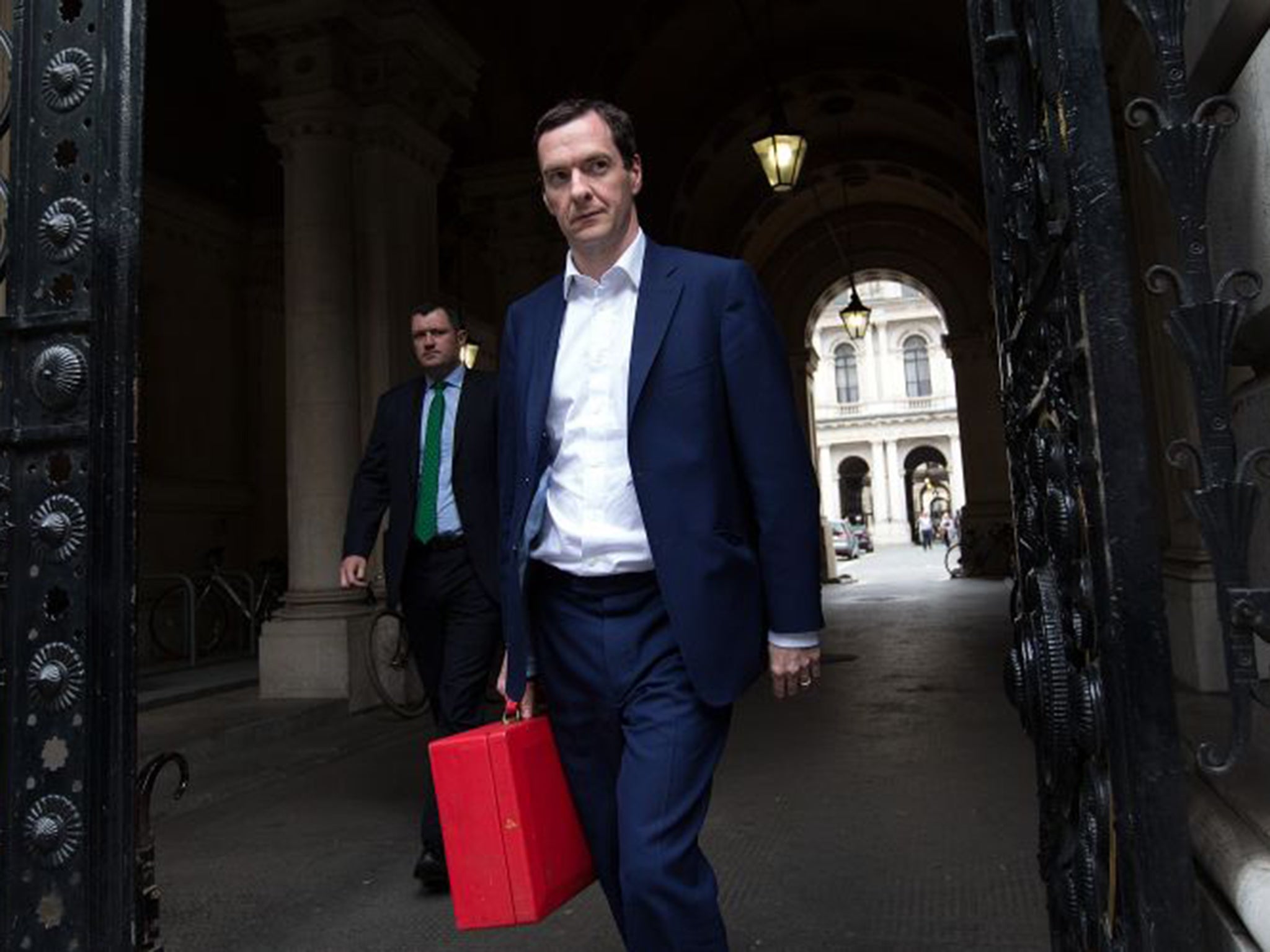Budget 2015: George Osborne to axe subsidies for higher income earners in social housing
Rent benefits to be scrapped for those on more than £30,000
Higher income earners who live in social housing will no longer be able to claim taxpayer-funded subsidies for their rent under a fresh welfare cut expected to be announced by George Osborne in his Summer Budget this week.
The “Pay to Stay” measure, which will form part of the Chancellor’s attempts to slash the Government’s welfare bill by £12bn, will scrap benefits for some 350,000 people who live in housing association and local authority properties. The move will save £250m a year by 2018/19, a fraction of the £12bn Mr Osborne plans to cut.
From 2017/18, those on incomes above £40,000 in London and £30,000 in the rest of England who live in social housing will be charged a market or near-market rent. The Treasury estimates that higher income social tenants benefit on average from more than £3,500 per household from reduced rent. This group of people represent around 9 per cent of all social tenants in England, including more than 40,000 social rented tenants with household incomes in excess of £50,000 per year, and a further 300,000 with incomes of more than £30,000.
For the past five years, housing associations and local authorities have been able to charge market rents to those on incomes of more than £60,000. The Treasury will recoup the additional rental income that local authorities receive, which will be used to reduce the deficit and generate extra income for housing associations to reinvest in affordable housing.

Sources said the measure would affect the “Frank Dobsons of this world” after the former Labour MP was revealed in 2011 to have been living in a council house despite being on a Commons salary of £66,000.
Mr Osborne is under pressure to do more to help the working poor if, as expected, he announces plans to slash tax credits for working families, a possible reduction in the housing benefit cap and to balance his inheritance tax cut for all but the very wealthiest home-owners. The Chancellor could balance these welfare cuts with measures to increase salaries, including possible incentives to employers who pay the living wage. Public-sector organisations who pay the living wage could also get priority in Whitehall procurement contracts – one option under consideration by the Treasury.
Budget 2015: Osborne to raise levels for inheritance tax
Comment: Osborne is set to get tough with further cuts
What George Osborne won’t do in the Budget next week
Banks tell Osborne to rethink the banking levy
The living wage incentives were a Labour policy under Ed Miliband and in a recent debate on child poverty the Work and Pensions Secretary Iain Duncan Smith gave strong hints that the Government would do more in this area as part of a wider bid to boost productivity, the current buzzword in Whitehall.
In an article for The Independent on Sunday, Labour leadership hopeful Andy Burnham accuses Mr Osborne of “craving political positioning”, but admits that this Budget was “only happening because too many people felt they couldn’t trust Labour with the economy”.
He adds: “Winning back people’s trust on the economy would be my first and most important task as leader ... we didn’t get everything right …. The truth is we let the deficit get too high in the middle of the last decade when the economy was growing and, when the crash came, we were not as prepared as we should have been.”
His leadership rival, shadow Home Secretary Yvette Cooper, last night pledged to prioritise boosting trade links with the Bric countries (Brazil, Russia, India and China) and warned that Mr Osborne’s target of the UK exporting £1trn by 2020 will be missed.
Budget 2015: Stamp duty unlikely to be changed by Osborne
300,000 people plead with Osborne not to cut tax credits
Boris Johnson calls on Osborne to cut top rate of income
"Why do we call social security payments 'benefits'?"
She said: “Britain’s export performance has been dire. After five wasted years we are set to miss our target of exporting £1trn in 2020 by more than £380bn. UK productivity is falling behind our competitors with the biggest gap with the rest of the G7 since 1991. Four of our five biggest export destinations are EU countries, which makes it all the more worrying that the Government is failing to lead in Europe.
“Labour must reset our relationship with business. We need to always show how we support jobs and business growth, as well as ensuring businesses show responsibility towards their consumers and staff. The opportunities of the digital economy and of “knowledge intensive” jobs must be seized ... Britain is in a strong place to do that, but without new skills, investment and dynamism we are going to get left behind.”
Join our commenting forum
Join thought-provoking conversations, follow other Independent readers and see their replies
Comments